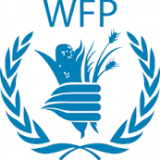Expert advice
- Ensure the proper implementation of Cluster Approach in the technical area of Logistics: as per current IASC guidance; and, in-line with agreed technical standards and norms endorsed by the Global Logistics Cluster Lead Agency and Partnership Base.
- Ensure that Logistics Cluster overall (i.e. engagements involving the Lead Agency and partners, under the Logistics Cluster strategy) is managed in line with the Principles of Partnership.
- Facilitate discussion and agreement on the use of common standards and tools among cluster partners. Promote awareness of and adherence to relevant policy guidelines, codes of conduct and examples of good practice by all cluster partners.
Needs assessment, prioritization, project planning and implementation
- Together with Logistics Cluster partners, lead the continuous identification and assessment of logistics capacities, gaps and bottlenecks in country.
- Provide partners with logistics solutions based on detailed cost/ benefits analyses and recommended standard operating procedures.
- Establish a Logistics Cluster strategy, based on solid cost/benefit analysis, to address the relevant gaps and needs identified with partners and the priorities identified by the Humanitarian Country Team (i.e. through augmented coordination, information sharing, logistics services, capacity building, etcetera); and, update it regularly according to evolving needs.
- Report and address to the appropriate WFP representative any logistics gaps which requires WFP, as lead Agency of the Logistics Cluster, to intervene as Provider of Last Resort.
- Ensure in-country logistics challenges are identified, relevant challenges are addressed to the relevant authorities and proposition are made to ease the implementation of special measure with local authorities to implement HRP.
- Ensure that the Logistics Cluster strategy in time-bound, including specific planning for an end to Cluster-based support activities and hand-over, where necessary, to local capacity and/or national authorities (including appropriate provisions for training, capacity building and knowledge transfer as needed).
- Ensure that the Logistics Cluster strategy is measurable, defining appropriate key indicators by which the performance of the Logistics Cluster overall, and individual contributing partners (i.e. Lead Agency and Service Providers) can be measured.
- Ensure that Logistics Cluster strategy and funding requirements is adequately reflected in overall country strategies at WFP and inter-agency level, such as the WFP Country Strategic Plan and the Humanitarian Response Plan (HRP) respectively, as well as in Flash and/or Consolidated Appeals.
- Jointly with key stakeholders, review and assess project proposals from potential Service Providing Partners, insofar as the activities planned are within the scope of the Logistics Cluster strategy; and coordinate, monitor and evaluate the implementation of approved proposals.
- Jointly with WFP HR, develop a staffing structure for the Logistics Cluster support to be provided by the Lead Agency (i.e. for the management and monitoring of the strategy overall, and any other specific activities committed to by WFP – IM, technical support, and/or service provision); adjust to evolving needs as required.
- Jointly with WFP Supply Chain, Finance and Donor Relations, identify other resources (i.e. financial, assets and equipment, sub-contracted services) necessary for the Logistics Cluster support to be provided by the Lead Agency; adjust to evolving needs as required.
- Jointly with the Logistics Cluster Lead Agency design concepts of operations and support its implementation on behalf of the Service Users, ensuring Service Providers (i) comply with WFP rules and regulations (ii) meet Global Logistics Cluster standards and (iii) effectively provide the services
- Manage the relationships with logistics Service Providers on behalf of the Service users
Effective intra and inter-cluster coordination
- Establish and ensure fluid and regular communication and coordination with all relevant sector stakeholders, including governmental authorities, national and international humanitarian organizations, and WFP as country-level and global Lead Agency of the Logistics Cluster.
- Facilitate agreement on an efficient division of work and the assignment of responsibilities amongst cluster partners which takes account of their comparative advantages and complementarities.
- Provide leadership within the Logistics Cluster by organizing and chairing regular Logistics Cluster meetings to coordinate the continuous identification and prioritisation of logistics needs, as well as strategic solutions adequate to overcome bottlenecks and ensure delivery of humanitarian aid/relief.
- Actively support the establishment and maintenance of HC/HCT-endorsed inter-cluster coordination mechanisms; and, represent the Logistics Cluster at these and other relevant emergency coordination and inter-agency meetings.
- Identify issues of mutual interest and identify information which (i) should be proactively shared with other clusters, and (ii) should be acquired from other clusters to ensure a more effective overall response.
- Joint inter-cluster needs assessment exercises as appropriate to ensure that identified needs, gaps and priorities are as evidence-based as possible in any given emergency context.
- Ensure appropriate attention to priority cross-cutting and cross-sectoral issues (e.g. gender, age, HIV and AIDS, human rights, environment and early recovery) as per IASC guidance.
Information management, monitoring, evaluation and reporting
- Coordinate and supervise the collection, analysis and dissemination of relevant logistics information – continually look to develop high quality information management products – within the Logistics Cluster, and with other relevant stakeholders.
- Contribute to adequate reporting and information sharing, both within the Logistics Cluster, with other Clusters (e.g. Inter-Cluster coordination mechanisms) and other relevant stakeholders.
- Ensure the proper reporting, communication and coordination with the WFP Country Office (corporate reporting requirements including Annual Country Report) and with the Global Logistics Cluster Support Team.
- Measuring progress against the cluster strategy and agreed results. Recommending corrective action where necessary. Make adjustments to the overall strategy and programming as appropriate.
- Contribute to real time evaluations, including audits.
Advocacy
- Together with Cluster partners, identify core advocacy concerns for the sector and contribute key messages to the broader advocacy initiatives of the Humanitarian Coordinator, the Cluster Lead Agency, donors and other relevant actors.
- In coordination with the WFP Country Office and Government Partnership Officer, advocate for funding with donors.
- Encourage all cluster partners to include common/sector-wide issues, concerns and messages in their own communication activities
More Information
- Job City KINSHASA


